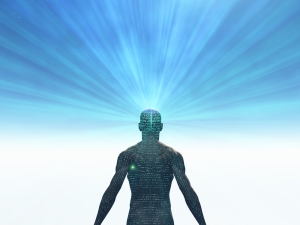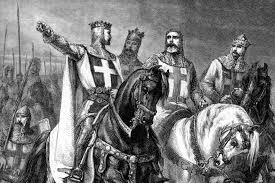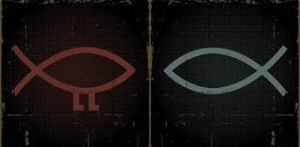Philosophy of mind concerns itself with a host of topics such as mental states, mental functions, and consciousness. One of the most passionately contested issues within the philosophy of mind is how these mental states relate to the physical body or brain. Within the contemporary debate, most come down on one of two sides, materialism or substance dualism. According to materialism, human beings are entirely material objects, where there exists no immaterial component, and undoubtedly no immaterial mind or soul. To avoid falling victim to the possibility of there existing anything that runs contrary to a materialist worldview, materialists will avoid language that may leave open the possibility of an immaterial mind. Therefore, materialists speak more about mental states then the function of the mind. Jeffrey E. Brower, Professor of Philosophy at Purdue University writes, “Materialism identifies human beings with their bodies, human minds with the brain, and human mental states with properties of the brain . . . .”[1] Substance dualists hold no contention to the view that human beings are entirely material. What they reject, however, are mental states being the kind of thing produced or identified with material substances. Substance dualists insist human beings be understood as a wholly material substance as it relates to the body, and wholly immaterial when it comes to the mind.
Although arguments in support of and against materialism and substance dualism exist, consideration will not be given to them in this post. Instead a third alternative to the mind-body problem will be offered, namely, a hylomorphic view. First, one will consider a hylomorphic view of the corporeal world as presented by Aristotle and Aquinas, which is a departure from the mechanistic view common to materialism and substance dualism. Next, further consideration will be given to the nature of human beings and will show that humans are neither fundamentally material beings nor immaterial beings; rather, humans exist as some combination of the two. Finally, given the hylomorphic view, explanation will be provided as to how the human mind and body relate to and interact with one another.
Hylomorphism
The competing views in the philosophy of mind, materialism and substance dualism, share a mechanistic view of the natural world, namely that all living and non-living things can be explained in terms of matter and the physical laws. The mechanistic view is a
shared belief that materialism gets at least most things right. That is, our account of nonliving things, plants, and lower life animals is no different whether one accepts materialism or a dualism about persons; that is, either way the mechanist takes it that the whole story about nonliving things, plants, and lower animals can be given in terms of matter, the physical properties of matter, and the relevant physical laws.[2]
If one adopts materialism as an ontology of the natural world, then it is not surprising that a mind-body problem exists. How does one reconcile a wholly material world with psychological functions that appear to be immaterial? The proper starting point is not to give an account of the mind-body relationship; rather, one must adopt an ontology of the material world where no such problem exists.
Hylomorphism is the theory that “matter” (hylos,) and “form” (morphos) are joined resulting in a substance. Common experience tells us that change is part of nature. Come autumn, the color of the Aspen’s leaves change into a spectacular and brilliant yellow. Come the spring, the same Aspen tree will produce young and tender green leaves. In this example of change, the Aspen remains substantially the same. While the color of the leaves may change throughout the seasons, the Aspen tree remains an Aspen tree. Aspen trees are a hardwood species that is commonly used by pulp mills in manufacturing fiberboard that is then used to create paper. Should the Aspen be subjected to the process of becoming paper, one can no longer call it an Aspen tree, for it lacks what is proper to an Aspen.
Upon reflecting, one can see that there are two different ways change can occur. In the case of leaves changing colors, the Aspen remains but underwent accidental change. The term accidental implies a non-essential property of a particular substance was changed; thereby the thing itself did not undergo change. However, in the case of the Aspen being used to create paper, it is changed substantially; it no longer is an Aspen, it has now become a sheet of paper.
To account for change experienced in nature, Aquinas accepts the Aristotelian doctrine of the hylomorphic composition of material substances, which asserts that all substances are a composite of prime matter and form. For Aquinas, prime matter is pure potentiality, which is to say it lacks form per se; prime matter is in potentiality to all forms.[3] Because prime matter is pure potentiality, lacking any actuality, prime matter is incapable of existing by itself, which brings about two characteristics unique to prime matter. First is the radical dependency of prime matter on forms and compounds for its continued existence.[4] Because prime matter is pure potentiality, it lacks the ability to exist through itself, and therefore, is dependent on the inherence of forms for its existence.[5]
The second distinguishing characteristic of prime matter is its non-individuality. For something to have individuality, that thing must satisfy two conditions. Brower writes
It must have actuality through itself; and second, it must belong to some natural kind or species. Insofar as prime matter is a being in pure potentiality, it clearly fails the first condition. Only forms, substances, and compounds have actuality through themselves. But insofar as prime matter is a being in pure potentiality, Aquinas thinks that it also fails the second condition. For strictly speaking, only something that has actuality through itself can be said to belong to a natural kind (or species), and hence possess a common nature (or quiddity).[6]
The second element of a hylomorphic composition is not as difficult to grasp as prime matter. The form (morphos) gives a thing the distinct properties belonging to a class or species. Take for example the statement, “Socrates is a man”. The statement is true because Socrates possesses the form of humanity. Socrates, therefore, partakes of the universal element that makes him a man, belonging to the species humanity.[7] However, Socrates is not humanity, he merely possesses humanity. When Socrates passes out of existence, humanity does not pass out of existence along with Socrates. Therefore, it is said Socrates is not humanity, rather, he has humanity. However, what is it that makes Socrates this man? What is it that individuates Socrates from all others who possess humanity? The answer can only be matter. This becomes confusing since it was previously stated that matter, being pure potentiality, lacks the determinations necessary to individuate form. In response to this apparent problem, Aquinas is compelled to say that, “the principle of individuation is material signata quantitate, in the sense of matter having an exigency for the quantitative determination which it receives from union with form.”[8]
The imagery of a statue is a common analogy to explain how matter and form come together to create a substance. Unformed clay represents matter that has the potential to be shaped into anything. The artist has in mind the form of a horse and after shaping the unformed clay into the form of the horse, the substance created is a statue that has the likeness of a horse. At the same time, the clay (matter) can take on a different form, thus creating an entirely new statue (substance). As the form becomes altered, the substance changes, whereas when the form remains intact, but non-essential elements are altered, an accidental change occurred.
As one can see, a hylomorphic view of the material world provides insight as to how change is experienced. Having laid this foundation, one can build a nature of man from which a philosophy of mind will emerge.
Form and Soul
For Aquinas, the soul is the form when discussing living substances; the soul gives living substances their form. All living substances have a soul that determines what kind of thing it is. For this to make sense one must “start from how we use the word anime [from which soul translates]. Animate means living and inanimate non-living, so soul means that which forms animates or makes alive the living things with which we are familiar.”[9] Now, different living substances possess different kinds of souls; there is the hierarchic scale of being: vegetative souls, the irrational sensitive souls of animals, and the rational soul of man. The hierarchic scale of being will aid in the understanding how the mind and body interact within the context of a hylomorphic view of nature.
At the bottom of this hierarchic scale of life is the vegetative soul. Vegetative implies the ability
to reproduce and bring living bodies into existence, to grow to a proper size, and to digest food so as to maintain that existence and size. The last two abilities affect the actual body they reside in, but the reproductive ability acts to produce other bodies, and so approaches the dignity of sense-powers. Digesting food serves growth; both serve reproduction. Such powers are often called natural powers, because their effects— existence, size and self-preservation—are similar to effect in [inanimate] nature, though more perfectly achieved, and because they act by means of natural [physico-chemical] forces.[10]
The three forces proper to the vegetative soul are nutrition, growth, and reproduction. Nutrition is the ability to take in nutrients for the purpose of sustenance, through which non-living matter is converted into living matter. Nutrition then adds to the power of growth, by which a particular organism achieves the quantity proper to its kind. As that organism grows, it develops the ability to reproduce, generating a new individual living substance resulting in the continuation of the species.
The sensitive soul of animals does all that the vegetative soul does; it too takes in nutrition, grows, and reproduces. However, there are two additional functions possessed by the sensitive soul that gives it higher standing in the hierarchy of animate beings; knowledge and appetite.[11] Like the vegetative soul, the sensitive soul moves itself. However, the movement of the sensitive soul is more pronounced, in that it is capable of moving itself from one location to another, also called the power of locomotion.[12] This movement or power of locomotion is in response to what it perceives (knowledge) from its surrounding environment. The movement of the animal can only be achieved through an awareness of its surroundings, which it obtains through the senses. From what is sensed, the animal is then able to move itself in the direction away from or near to that which is observed via the power of appetite. This ability to take in information via the senses, and move according to what is perceived is what sets the sensitive soul apart from the vegetative soul.[13]
Taking top position in the hierarchy of corporeal being is the rational soul in virtue of its intellective power. Like the sensitive soul, the rational soul possesses the five exterior senses, the four interior senses (see footnote 13), and the powers of locomotion, knowledge, and appetite. However, the rational soul’s activity transcends the physical in that it is not the activity of any bodily organ.[14] For Aquinas, the human soul straddles the corporeal and incorporeal worlds. Aquinas’ metaphysical world is structured in such a way that
at the top of the metaphysical hierarchy there are forms—the angels (or maybe God and the angels, depending on how one takes the implications of divine simplicity)—which exist independently and are not configurational constituents of anything else. Near the bottom of the hierarchy are forms that configure matter but do not exist independently of matter as configured things in their own right. . . And in the middle are human souls, the amphibians of this metaphysical world, occupying a niche in both the material and spiritual realm. Like an angel, the human soul is itself a configured subsistent form; but like the forms of other material things, the human soul has the ability to configure matter.[15]
Because the human soul is subsistent, it can go on existing beyond the death of the human being. The nature of man, being a composite of form (soul) and matter brings clarification when one reads God’s words to Adam, “you are dust, and to dust you shall return” (Gen. 3:19); while at the same time reading what the Bible says of the soul following death: “and the dust returns to the earth as it was, and the spirit returns to God who gave it” (Eccles. 12:7).
Although the continued existence of the human soul is certainly a distinguishing factor from the vegetative and sensitive soul, there is one other power of the rational soul that is most relevant to the purposes of this paper, and that is the manner through which knowledge comes about. It is in this uniqueness of the rational soul where the overlap begins to emerge in the philosophy of mind, providing an explanation as to how the mind and body relate.
Mind and Body Connection
When the topic of mind comes up in conversation, most use the term to explain a function of the brain. Granted, this may be a simplistic and yet marginalized rendering on the philosophy of mind, but those new to the topic may not have considered the multiple views on what the mind is. Is the function of the mind reducible to brain impulses, or is the mind wholly immaterial and distinct from the human body? Going back to the hylomorphic composition of man, the mind is a function proper to the rational soul, and the rational soul is what configures matter so that the substance resulting from the configuration is a human being. The rational soul does not exist in a one distinct location within the body, rather, the “whole soul is entirely in each part of the body, just as whiteness is entirely in each part of a completely white thing.”[16] To say the soul exists in each part of the body, and the mind is a function proper to the rational soul, has implications that will help understand how a hylomorphic view of man helps to shape one’s philosophy of mind. When man comes to know something, the act of knowing does not exist merely in the brain; rather, knowing exists in the whole being.
Corporeal objects act upon the body’s external five senses. As discussed previously, sense perception is an act of the soul and body, not just the body. When corporeal objects act upon the bodily senses, a phantasm of that object appears in the imagination. The phantasm corresponds with the material object; however, the phantasm is not a universal representation. Instead, the phantasm, like the material object it mimics, is a particular. In fact, all phantasms are particulars. If one holds in his mind an image/phantasm of man, he may be thinking of a bald man or a man with hair. Either way, the image is not indicative of all who can be classified as participating in the species of man. Therefore, nothing can be known from a particular phantasm. Intellectual cognition occurs when the universal elements are apprehended through the act of abstraction. The process by which this occurs is through the workings of the active and passive intellects. Aquinas writes,
Since we can only understand what is actually understandable (just as we can only sense what is actually there to be sensed), our minds need to make things actually understandable by abstracting their forms from their material conditions. Our ability to do this we call our [active intellect]. Things outside us are already actually able to be sensed, so our senses need only to be receptive; but the mind must be part active, part receptive, for nothing material is actually understandable, and an immaterial receptive mind would be no use to us without an [active] mind to make material things actually understandable by abstraction.[17]
The human intellect does not contain any innate ideas or concepts, although was created to be fully receptive to them. The active intellect will abstract the universal elements, ideas, or concepts from the particular phantasm. The active intellect, which exists as purely active, is not capable of impressing upon itself the ideas and concepts. Therefore, there exists a passive intellect upon which the active intellect impresses the ideas and concepts, which give rise to knowledge and understanding.
The process through which the mind comes to know is dependent upon both material and immaterial elements, through which the mind and body connect. Knowing requires the five external senses coming into contact with a material object. Once that happens, the phantasm existing in the imagination becomes less material than the object it mimics. From there, the active intellect abstracts the universal elements and concludes by impressing upon the passive intellect those elements. As one works through the process of knowing, the thing known becomes more and more immaterial. The mind of the rational soul is dependent on the body and the body on the mind.
Conclusion
The hylomorphic composition of man provides an alternative position to the philosophy of mind. The materialist says man is nothing more than a material substance and the mind is a function of brain activity. The substance dualist believes there are two distinct substances that make man what he is, body and soul. The substance dualist may describe their position as the soul driving the body. However, those holding to this position are challenged with explaining the connection point between the body and soul. Furthermore, the substance dualist, like the materialist, has a mechanistic view of nature, which says matter gets most things right. Leaving behind a mechanistic ontology of the natural world and embracing hylomorphism, the mind-body problem no longer exists. Therefore, explaining the mind-body relationship begins with an ontology of the material world.
Everything that exists in the material world is a composite substance made up of form and matter. Those substances that are animate possess a soul, making it the kind of animate being it is, either a vegetative soul, sensitive soul, or rational soul. The top position in this hierarchy is the rational soul, possessing the powers that are proper to the lower animate substances while possessing an immaterial intellect. Although the intellect is immaterial, it requires a body to present it with objects, through sense perception, and it is at this point where the mind and body meet. It is this dependence on the body that makes the hylomorphic position unique from materialism and substance dualism. Although the hylomorphic position may sound similar to substance dualism, dualism cannot explain why the soul—if it is wholly different from and superior to the body—should ever be united to the body. Keeping in mind, however, the hylomorphic composition of man, it is for the good of the soul to be united to the body because the body is necessary for a soul to exercise all vital capacities, since nearly all vital functions are functions of the body and soul together.
[1]Jeffrey E. Brower, Aquinas’s Ontology of the Material World: Change, Hylomorphism, and Material Objects (Oxford: Oxford University Press, 2014), 261.
[2]James D. Madden, Mind, Matter and Nature: A Thomistic Proposal for the Philosophy Of Mind (District of Columbia: The Catholic University of America, 2013), 22.
[3]Fredric Copleston, A History of Philosophy (New York: Image Books, 1993), 2:327.
[4]Brower, Aquinas’s Ontology of the Material World, 19.
[5]Ibid.
[6]Ibid., 19-20.
[7]By universal element I mean to say that Socrates has that which makes him human. I am not asserting that this thing called humanity exists apart from the mind. Universals exist via abstraction, where the mind abstracts from corporeal substances universal elements existing in material substances. This will be reviewed later in the paper as it touches upon how the mind and body relate via the act of knowing.
[8] Copleston, A History of Philosophy, 2:327.
[9]Thomas Aquinas, Summa Theologia, ed. Timothy McDermott (Notre Dame: Christian Classics, 1989), 108.
[10]Ibid., 120.
[11]Joseph Magee, “Sensitive Soul”, Thomistic Philosophy Page, accessed July 27, 2015, http://www.aquinasonline.com/Topics/senssoul.html.
[12]Copleston, A History of Philosophy, 377.
[13] This is an abbreviated list of what differentiates the sensitive soul from the vegetative soul. Aquinas further expounds on the five external senses and the four internal senses that is proper to both the sensitive and rational souls. The five external senses are those that make it possible to interact with the external world: sight, sound, touch, taste, and smell. The internal senses, however, aid in making sense of what is apprehended via the the five physical senses. For example, there is an instinctual operation by which the beaver can determine if a particular log is useful to build a damn. The beaver does not reason or judge in the proper sense; however, there is an interior sense by which it apprehends the utility of the log, thereby triggering an instinctive judgement.
[14]Thomas, Summa Theologiae, 120.
[15]Eleonore Stump, Aquinas, Arguments of the Philosophers (London: Routledge, 2003), 200
[16]Ibid., 202.
[17] Thomas, Summa Theologiae,122.








